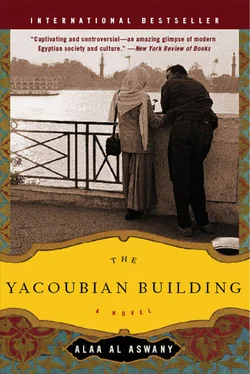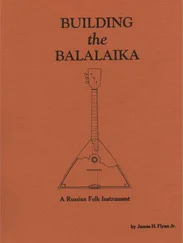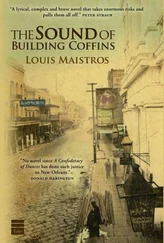Alaa Al Aswany - The Yacoubian Building
Здесь есть возможность читать онлайн «Alaa Al Aswany - The Yacoubian Building» весь текст электронной книги совершенно бесплатно (целиком полную версию без сокращений). В некоторых случаях можно слушать аудио, скачать через торрент в формате fb2 и присутствует краткое содержание. Год выпуска: 2006, ISBN: 2006, Издательство: Adobe Acrobat eBook Reader, Жанр: Современная проза, на английском языке. Описание произведения, (предисловие) а так же отзывы посетителей доступны на портале библиотеки ЛибКат.
- Название:The Yacoubian Building
- Автор:
- Издательство:Adobe Acrobat eBook Reader
- Жанр:
- Год:2006
- ISBN:978-0-06-087813-9
- Рейтинг книги:5 / 5. Голосов: 1
-
Избранное:Добавить в избранное
- Отзывы:
-
Ваша оценка:
- 100
- 1
- 2
- 3
- 4
- 5
The Yacoubian Building: краткое содержание, описание и аннотация
Предлагаем к чтению аннотацию, описание, краткое содержание или предисловие (зависит от того, что написал сам автор книги «The Yacoubian Building»). Если вы не нашли необходимую информацию о книге — напишите в комментариях, мы постараемся отыскать её.
The Yacoubian Building — читать онлайн бесплатно полную книгу (весь текст) целиком
Ниже представлен текст книги, разбитый по страницам. Система сохранения места последней прочитанной страницы, позволяет с удобством читать онлайн бесплатно книгу «The Yacoubian Building», без необходимости каждый раз заново искать на чём Вы остановились. Поставьте закладку, и сможете в любой момент перейти на страницу, на которой закончили чтение.
Интервал:
Закладка:
Despite these setbacks, the project achieved enormous success and helped thousands of Muslim women to adopt modest dress. Paid advertisements in the form of journalistic reports about the project appeared in the press where Hagg Abu Himeida went on record as saying that he’d sworn to set aside a large sum of money to be spent on charitable works in the hope of winning the favor of God, Almighty and Glorious, and that following consultation with qualified men of religion he’d discovered that the best method by which he might serve the call was to help Muslim women to observe modesty, as a first step toward a total commitment to God’s true path. When he was asked how much the distribution for free of thousands of new modest garments had cost him, Abu Himeida refused to say how much he had spent, asserting that he anticipated that God, Almighty and Glorious, would compensate him for the money; and there can be no doubt that the “modest dress” project catapulted Abu Himeida’s name into the world of celebrity and turned him into one of Egyptian society’s leading figures. Despite this, rumors constantly circulated that Abu Himeida was one of Egypt’s biggest heroin dealers, that the Islamic project was a money-laundering front, and that the bribes he paid to top officials protected him from arrest.
Abu Himeida had expended enormous effort to get the Patriotic Party nomination for the Kasr el Nil constituency, and when the party nominated Hagg Azzam, he was furious and made strenuous representations to important people, but in vain. El Fouli’s word was supreme. In fact, a high official who was a strong friend of Abu Himeida’s listened to him complaining against El Fouli, then smiled and said, “Listen, Abu Himeida. You know that I love you and look out for your interests. Under no circumstances escalate your differences with El Fouli. If you don’t get into the People’s Assembly this time, there’ll be other times, God willing. But you don’t ever lose El Fouli because he has backers and contacts beyond anything you can think of. Plus, he’s cunning, and if he gets mad, he’ll cause you problems you can’t even imagine.”
Abu Himeida wouldn’t, however, back down. On the contrary, he put himself forward officially as an independent, flooding the Kasr el Nil constituency with hundreds of election posters bearing his name, his portrait, and his election symbol (the chair). He also erected large election marquees every night in the downtown area where his supporters would gather and he would make speeches to them attacking Hagg Azzam and hinting at the illicit sources of his wealth and his dedication to the pleasures of the senses (an allusion to his new wife). Azzam got angry at this smear campaign, went to El Fouli, and told him frankly, “What’s the benefit of being the party’s candidate, if it doesn’t protect me from being insulted every night in public?”
El Fouli shook his head and promised that everything would be all right, then the next day put out a statement that was prominently displayed on the front pages of all the newspapers, in which he said, “The Patriotic Party has one candidate in every constituency and it is the duty of all party members to stand with all their strength behind the party’s candidate. By the same token any member of the party who puts himself up against the party’s candidate will be tried by the party and stripped of his membership once the elections are over.”
The statement clearly applied to Abu Himeida, who, however, was unfazed by the threat and continued his violent campaign against Azzam, the marquees being set up now every day while hundreds of gifts were distributed to constituents. The two sides competed at collecting followers and supporters by any means possible, and violent fights broke out daily, leading to many injuries. In view of the great influence that both the opponents enjoyed, the security forces always adopted a neutral stance. Thus, the police would usually arrive at the site of the fight after it had broken up, or make symbolic arrests of some of those involved, who no sooner reached the police station than they were released without interrogation.

For some reason, the Faculty of Economics and Political Sciences of Cairo University is associated in people’s minds with affluence and chic. Its students, if asked which faculty they are in, are accustomed to reply, “Economics and Political Science” in a complacent, confident, and nonchalant way (as though saying, “Yes indeed. We are, as you can see, the tops.”). No one knows the reasons behind this mystique that surrounds the faculty. It may be because it was created separately, many years after the other faculties, that it acquired a special cachet, or because the government established it specifically — or so they say — so that the daughter of the Leader, Gamal Abd el Nasser, could go to it, or because the political sciences put those who study them in close daily contact with world events, which lends a certain stamp to their way of thinking and behaving, or finally perhaps because this faculty was for a long time the royal gateway to a job in the Ministry of Foreign Affairs and the children of the great would join it as a sure first step to a diplomatic career.
Despite all of this, no such ideas were in Taha el Shazli’s mind when he stuck the Faculty of Economics sticker onto his placement application as his first choice. His hope for a place in the Police Academy was gone forever, and he wanted to exploit his high marks to the maximum; that was all there was to it.
On the first day of studies, when he passed beneath the university clock and listened to its celebrated chimes, he was seized by that certain sense of awe and majesty, and when he entered the lecture hall filled with the reverberating buzz given off by the chatter and mingled laughter of hundreds of students as they began getting to know one another and swap merry small talk, Taha felt that he was something extremely small in the midst of a terrible congregation that resembled nothing so much as a mythical animal with a thousand heads whose eyes were all looking at, and examining, him. He found himself climbing up to sit far away at the highest point in the lecture hall, as though hiding himself in a safe place from which he could see everyone without their seeing him.
He was wearing blue jeans and a white T-shirt and had continued to believe as he left the house that he looked smart. But when he saw his student colleagues, he discovered that his clothes were not at all what was called for and that the jeans in particular were nothing but a cheap, second-rate imitation of the original. He made up his mind to persuade his father to buy even just one outfit from El Mohandiseen or Zamalek instead of the Approval and Light store from which he bought his cheap clothes.
Taha decided that he would not get to know anyone because getting to know people meant exchanging personal details and he might be standing in the midst of a group of his colleagues (including girls, maybe) and one of them would ask him what his father did. What would he say then? Next he was overcome by a strange feeling that one of the students sitting in the hall was the son of one of the residents of the Yacoubian Building and Taha might have bought him a pack of cigarettes once or washed his car, and he started to think what would happen if the unknown resident’s son found that the son of the doorkeeper was a colleague of his in the same faculty.
He kept thinking like this as the lectures went by one after the other until the call to the noon prayer rang out and a number of the students rose to pray. Taha followed these to the Faculty’s mosque and noticed with relief that like him they were poor, most of them being apparently of rural origin. This encouraged him to ask one of them when the prayer was over, “Are you first year?”
Читать дальшеИнтервал:
Закладка:
Похожие книги на «The Yacoubian Building»
Представляем Вашему вниманию похожие книги на «The Yacoubian Building» списком для выбора. Мы отобрали схожую по названию и смыслу литературу в надежде предоставить читателям больше вариантов отыскать новые, интересные, ещё непрочитанные произведения.
Обсуждение, отзывы о книге «The Yacoubian Building» и просто собственные мнения читателей. Оставьте ваши комментарии, напишите, что Вы думаете о произведении, его смысле или главных героях. Укажите что конкретно понравилось, а что нет, и почему Вы так считаете.












